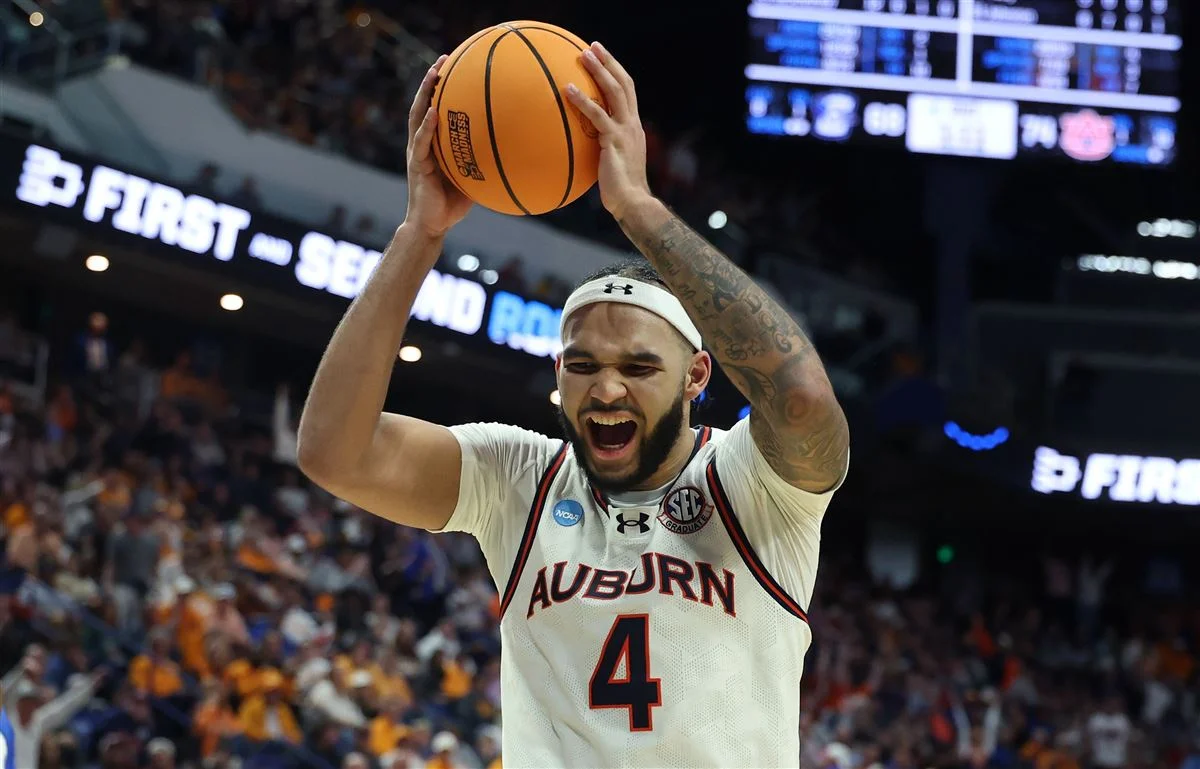The modern landscape of college basketball has changed dramatically over the past decade, and one of the most significant factors shaping this evolution is the rise of the transfer portal. Programs that are able to strategically utilize the portal have seen dramatic shifts in their fortunes, and one of the prime examples of this success story is the Auburn Tigers basketball team. Under the leadership of head coach Bruce Pearl, Auburn’s journey to the 2024 NCAA Final Four has been a testament to how smart, targeted additions through the transfer portal can shape the destiny of a college basketball program.
As Auburn’s basketball team prepared for their first Final Four appearance in recent years, the foundation of their success was built not just on homegrown talent but on a roster that had been revamped and strengthened through the transfer portal. The Tigers used the portal not as a quick fix but as a strategic weapon, blending veteran experience with young talent to form a dynamic and well-rounded team. Auburn’s Final Four run is a story of adaptability, foresight, and team building, and it all began with their ability to tap into the power of the transfer portal.
The Role of the Transfer Portal in Modern College Basketball
Before diving into Auburn’s specific success, it’s important to understand the impact of the transfer portal on college basketball. The NCAA’s decision to grant players a one-time transfer exemption in 2021 completely reshaped the way teams approach roster building. No longer were teams solely dependent on recruiting high school players or building through multi-year development. The portal allowed college programs to quickly address weaknesses, fill gaps in the roster, and add immediate contributors from a pool of players who were already acclimated to the pressures of college basketball.
For Auburn, this shift in the recruiting landscape was something that head coach Bruce Pearl fully embraced. He and his staff understood that while recruiting elite high school talent was still important, the ability to tap into the pool of experienced transfers could accelerate the team’s trajectory to national relevance. The result has been a team that’s deep, versatile, and experienced—qualities that helped propel them to the Final Four.
The Key Transfer Portal Additions to Auburn’s Roster
Auburn’s path to the Final Four was not a singular story of one or two key players, but a collective effort from several transfer portal additions who provided the team with a much-needed infusion of experience, leadership, and skill. Each of these transfers brought something unique to the table, helping to round out the team and make them a legitimate contender in the fiercely competitive Southeastern Conference (SEC) and on the national stage.
1. Wendell Green Jr. (Guard, Eastern Kentucky)
One of the most important pieces to Auburn’s success in 2024 was the arrival of Wendell Green Jr., a point guard who transferred from Eastern Kentucky. Green immediately provided the Tigers with a veteran presence and leadership in the backcourt, an area that had been somewhat inconsistent in previous seasons. Known for his quickness, basketball IQ, and ability to run an offense, Green’s experience as a starter at Eastern Kentucky allowed him to step into Auburn’s high-pressure environment seamlessly.
Throughout the season, Green emerged as one of Auburn’s most reliable and explosive players. His ability to orchestrate the offense and create opportunities for his teammates, as well as his knack for hitting clutch shots, made him a difference-maker. His arrival through the transfer portal was pivotal in allowing Auburn to remain competitive in close games, especially in the SEC, where matchups are often decided by guard play. Green’s leadership on and off the floor was crucial in the Tigers’ march to the Final Four.
2. K.D. Johnson (Guard, Georgia)
Another significant addition for Auburn was K.D. Johnson, a transfer from Georgia who brought a scoring punch and defensive tenacity to the backcourt. Johnson had been a standout player for the Bulldogs, and his scoring ability was immediately apparent when he joined the Tigers. What made Johnson so valuable to Auburn was his aggressive mindset on both ends of the court. As a defensive specialist, he harassed opposing ball handlers, and offensively, he was capable of going off for big scoring runs at a moment’s notice.
His competitive nature was a perfect fit for Auburn’s high-energy, fast-paced style of play under Bruce Pearl. Johnson’s ability to score in bunches and provide an emotional spark for the team made him an essential component of Auburn’s success. Whether he was making a key steal, hitting a game-changing three-pointer, or diving for a loose ball, Johnson’s relentless play helped propel Auburn to victory in many of their tightest matchups.
3. Johni Broome (Forward, Morehead State)
Perhaps the most impactful transfer for Auburn’s success was Johni Broome, a 6’10” forward who transferred from Morehead State. Broome was an absolute revelation for the Tigers, providing them with a much-needed interior presence on both ends of the floor. Known for his shot-blocking, rebounding, and versatile scoring ability, Broome instantly became one of the most dominant big men in the SEC.
Broome’s defensive presence allowed Auburn to become one of the best defensive teams in the country, as his ability to protect the rim and secure rebounds was invaluable. Offensively, he became a key piece of Auburn’s frontcourt, capable of scoring in the post, hitting mid-range jumpers, and even stepping out to the three-point line when necessary. His ability to impact the game on both ends of the floor made him a key factor in Auburn’s run to the Final Four, and his addition via the transfer portal proved to be a masterstroke by Pearl and his staff.
4. Allen Flanigan (Guard/Forward, Auburn)
While Allen Flanigan was technically not a transfer, his return to Auburn after recovering from an injury was another crucial aspect of Auburn’s success. Flanigan had been an integral part of the Tigers’ lineup before his injury, and his return to the court brought added depth and versatility to the roster. As a 6’6” guard/forward, Flanigan was capable of playing multiple positions and contributing as both a scorer and a playmaker.
Flanigan’s ability to guard multiple positions, hit key shots, and drive to the basket made him an invaluable asset for Auburn. His experience, combined with his newfound health and confidence, helped elevate Auburn’s performance as the season went on. His leadership and ability to contribute in all facets of the game allowed Auburn to remain balanced and formidable against top-tier competition.
The Chemistry Between Transfers and Returnees
While the transfer portal additions were critical to Auburn’s Final Four success, the chemistry between these new players and Auburn’s returning talent played an equally important role. Coach Bruce Pearl has always emphasized the importance of team chemistry, and his ability to blend transfers with returning players like Flanigan, Jaylin Williams, and Chris Moore created a cohesive and balanced roster. The transfers meshed with the core players in a way that allowed Auburn to play unselfishly, share the basketball, and play together as one unit.
The integration of experienced transfers also provided Auburn with the maturity needed to handle the pressure of big moments, such as the high-stakes games in the SEC Tournament and the NCAA Tournament. With a roster full of players who had experienced college basketball at various levels, Auburn was able to navigate the ups and downs of the postseason with poise and focus.
Bruce Pearl’s Transfer Portal Strategy
One of the main reasons Auburn’s use of the transfer portal was so successful was the strategic approach of head coach Bruce Pearl. Rather than focusing on filling spots simply for the sake of it, Pearl and his coaching staff were meticulous in targeting transfers who would fill specific needs on the roster. Whether it was a veteran point guard like Wendell Green Jr., a lockdown defender like K.D. Johnson, or a dominant big man like Johni Broome, Auburn’s staff ensured that each transfer added value and enhanced the team’s overall chemistry and depth.
Pearl’s ability to identify players who fit within his system, both offensively and defensively, allowed Auburn to create a team that was greater than the sum of its parts. The players didn’t just contribute individually—they complemented each other, making Auburn one of the most well-rounded teams in the nation. Pearl’s strategic use of the transfer portal turned what could have been a rebuilding year into a Final Four run, demonstrating his prowess as a coach who understands how to maximize talent in a rapidly changing college basketball landscape.
The Transfer Portal’s Impact on Auburn’s Final Four Run
Auburn’s 2024 Final Four appearance is a shining example of how a well-executed transfer portal strategy can elevate a program to national prominence. By identifying key transfers who filled crucial roles and integrating them seamlessly into the team’s existing core, Auburn was able to construct a championship-caliber roster that blended talent, experience, and chemistry. The additions of Wendell Green Jr., K.D. Johnson, and Johni Broome, along with the return of key players like Allen Flanigan, created a formidable team that had the depth, skill, and determination to make a deep run in the NCAA Tournament.
As Auburn’s basketball program continues to thrive under Bruce Pearl, the transfer portal will undoubtedly remain a central part of their recruiting strategy. The Tigers’ journey to the Final Four in 2024 serves as a testament to how the transfer portal can be harnessed not just as a tool for filling gaps but as a means of building a championship-worthy team. Auburn basketball is once again a force to be reckoned with, and the success of the 2024 Final Four run is a product of a modern, strategic approach to roster construction that is redefining how college basketball teams are built in the new era.



